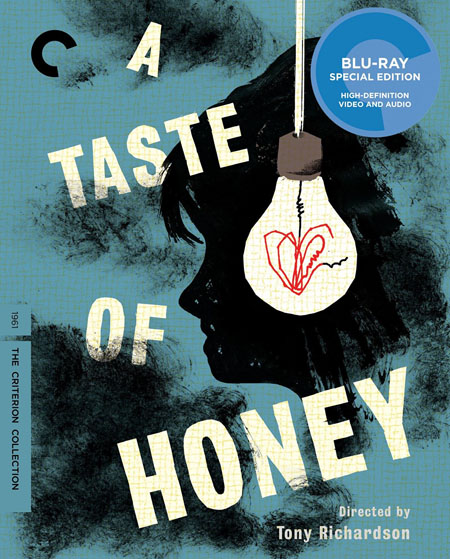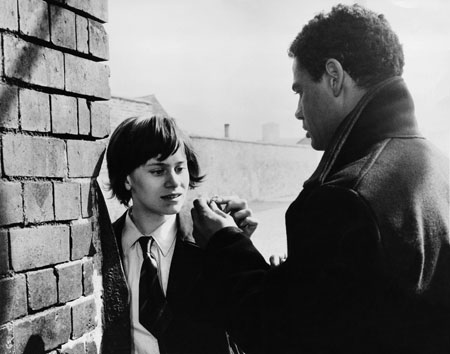
“EVERYTHING BUT THE
KITCHEN SINKâ€
By Raymond Benson
In
the late 1950s, a film movement emerged in Britain known as “Free Cinema.†Some
of the U.K.’s most celebrated filmmakers of the 1960s and 70s were among its
practitioners—Lindsay Anderson, Karel Reisz, Lorenza Mazzetti, and Tony
Richardson. The directors made low budget, short documentaries about the
working class with an almost deliberate “non commercial†sensibility. It was
radical and exciting, and it was a precursor to the British New Wave that
dovetailed with the French New Wave that was so influential on filmmakers
everywhere.
Many
of the pictures of the British New Wave, released between 1959 and 1964,
focused on characters described as “angry young men,†and the films themselves
were referred to by critics and theorists as “kitchen sink dramas.†This was
because the movies were presented in a harsh, realistic fashion and were indeed
about the gritty, working class lives of “ordinary†(but actually,
extraordinary) people. Some of the titles you’ll recognize—Look Back in Anger, Room at
the Top, Saturday Night and Sunday
Morning, The Loneliness of the Long
Distance Runner, This Sporting Life,
and others.
A Taste of Honey, released in 1961
and directed by Tony Richardson, was a product of the early Free Cinema
Movement and the British New Wave. Based on a controversial but highly
successful stage play by first-time dramatist (at age 19) Shelagh Delaney, Taste is remarkable for several reasons.
For one, it is about an “angry young woman.â€
It is also shockingly frank for its
time. The British Board of Censors approved the picture only for persons over
the age of 16, for it deals with these then taboo subjects—female promiscuity,
alcoholism, interracial sex, pregnancy out of wedlock, and homosexuality. There’s
even a bit of nudity. (As a “kitchen sink drama,†it indeed has everything
but!)
The
story focuses on Jo (expertly played by newcomer Rita Tushingham), who lives
with her tramp of a mother, Helen (Dora Bryan), in a Manchester ne’er-do-well
working class environment. Helen seems to flit from man to man and doesn’t care
all that much for her daughter, now 16. Jo, frustrated and dissatisfied with
the status quo, has a relationship with a black sailor (Paul Danquah) who’s in
town for a few days. Helen runs off with a new beau, Peter (Robert Stephens), and
gets married, leaving Jo alone and pregnant. Jo then finds solace by
befriending a gay man, Geoffrey (courageously portrayed by Murray Melvin), who
moves in with her until Helen decides to leave her husband and return.

This
was bold stuff in 1961. In fact, it was still against the law in England to be
homosexual at the time. It is to Delaney’s credit to bring the Geoff character
to life on the stage without saying he’s
gay, but letting the audience know without a doubt that he is. The film version
accomplishes the same thing (Melvin is the only cast member who was also in the
original stage production), handling the subject matter with honesty, grace,
and empathy.
Filmed
entirely on location, the picture captures the grime and hardships of these
people but also manages to be brilliantly entertaining. The acting is
top-notch, and Richardson’s direction is flawless. The camerawork by Walter
Lassally, often hand-held, provides a documentary feel to the proceedings that
expound on the earlier stylistic traits of the Free Cinema Movement.
The
Criterion Collection Blu-ray release features a new, restored 4K digital
transfer with an uncompressed monaural soundtrack, and it looks marvelous.
Supplements include: new interviews with Rita Tushingham and Murray Melvin (the
latter’s is especially enlightening); an audio interview with Tony Richardson
from 1962, accompanied by stills and clips; an excerpt from a 1960 television
interview with Shelagh Delaney; a 1998 interview with DP Walter Lassally; a new
piece with film scholar Kate Dorney about the film’s origins and the stage
production’s director, Joan Littlewood; and Momma
Don’t Allow, a 1956 Free Cinema documentary short co-directed by Richardson
and Karel Reisz and shot by Lassally. The booklet contains an essay by film
scholar Colin MacCabe.
While
the storyline and subject matter might sound drab and dire, A Taste of Honey does have an
under-flavor of sweetness that makes viewing the film a truly rewarding
experience. Recommended.
CLICK HERE TO ORDER FROM AMAZON